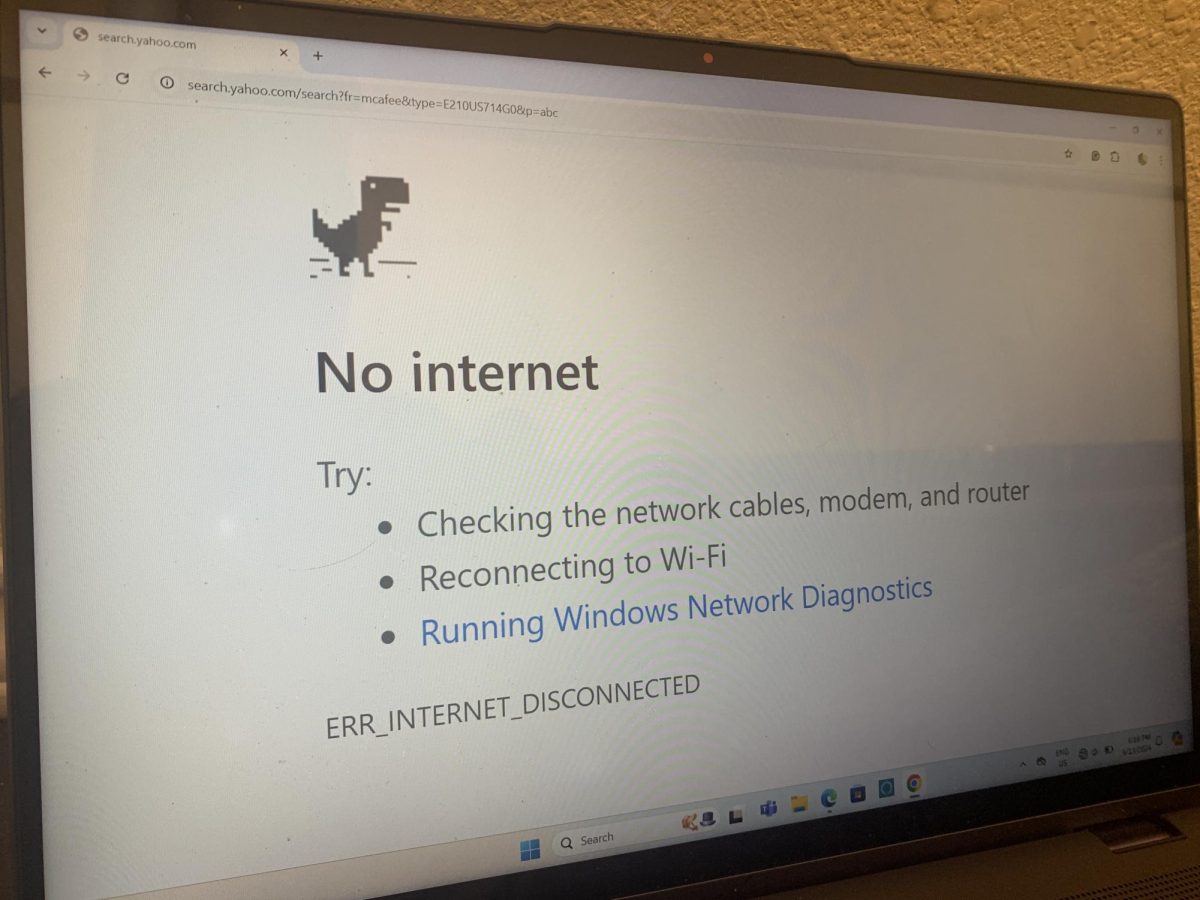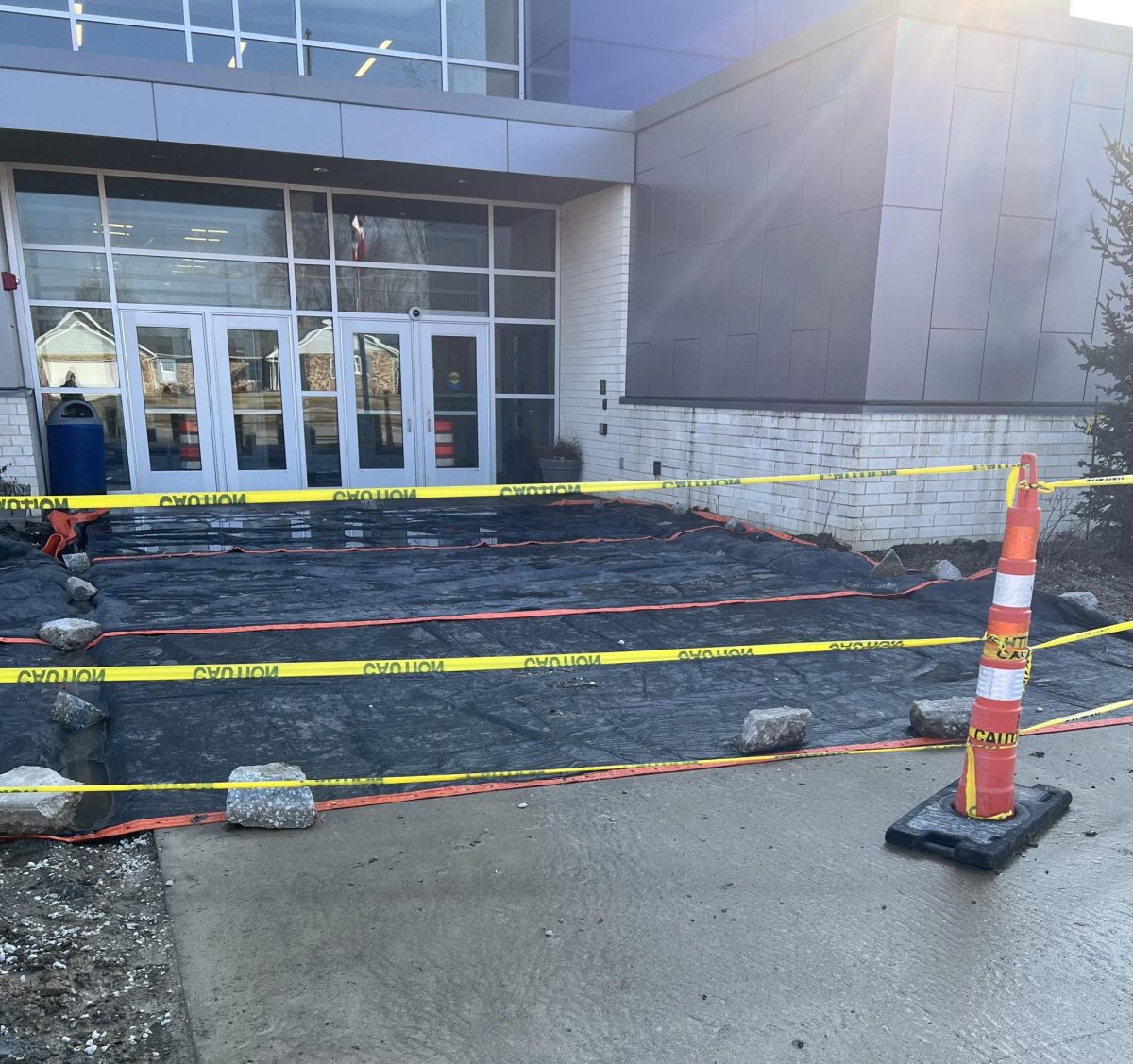A recent cyberattack on the school’s internet service provider led to many days without wi-fi. While the situation has been managed, some advocate for less reliance on the internet.
The new school year had a rocky start, with several days of total internet outages within the first few weeks. For many students, this posed significant challenges in readjusting to the school flow, especially when the vast majority of materials are online. “[The internet outages have] affected some teacher curricula, which affects my learning of the subject matters,” said senior Himanshu Jangid.
According to Kevin Pennekamp, the district’s technology director, the cause of this round of internet outages was a cyberattack on the school’s network service provider. The district outsources its internet needs to a secondary service provider. Recently, this service provider was subject to a cyberattack that led to the temporary shutdown of its wi-fi services.
Given the incident was a “highly sensitive cybersecurity incident”, the school ー in conjunction with the network provider ー cautiously worked to safely resolve the issues. “[The] mitigation process took parts of four days to identify how to allow internet flow to meet our needs,” said Pennekamp. With a solution in place, Pennekamp noted the district is not sure if the problems have been permanently resolved but feels the recent changes have worked.
With cyberattacks on the rise in recent years, some teachers have begun advocating for reduced dependency on the internet and an increased reliance on local files. Art teacher David Schaeffer is a dedicated supporter of offline schoolwork. “[Saving] files to a portable hard drive or to a desktop saves me all the time whether it is slideshows, presentations, or student examples,” said Schaeffer.
Downloading a week’s worth of assignments is becoming increasingly feasible with increasing computer storage capacities. Locally downloaded files are usable regardless of internet access, which allows for uninterrupted classroom productivity even when wi-fi issues arise. Once the internet comes online again, these files can be synced to the cloud, allowing for a seamless transfer to the online network.
Incidents like these serve as a reminder that increased dependency on the internet’s incredible productivity creates vulnerability without it. With time and effort, a balance between internet-based materials and locally saved files will allow for greater independence and efficiency.
















Porter • Sep 22, 2024 at 8:12 pm
Crazy that people are able to just hack into the wifi!